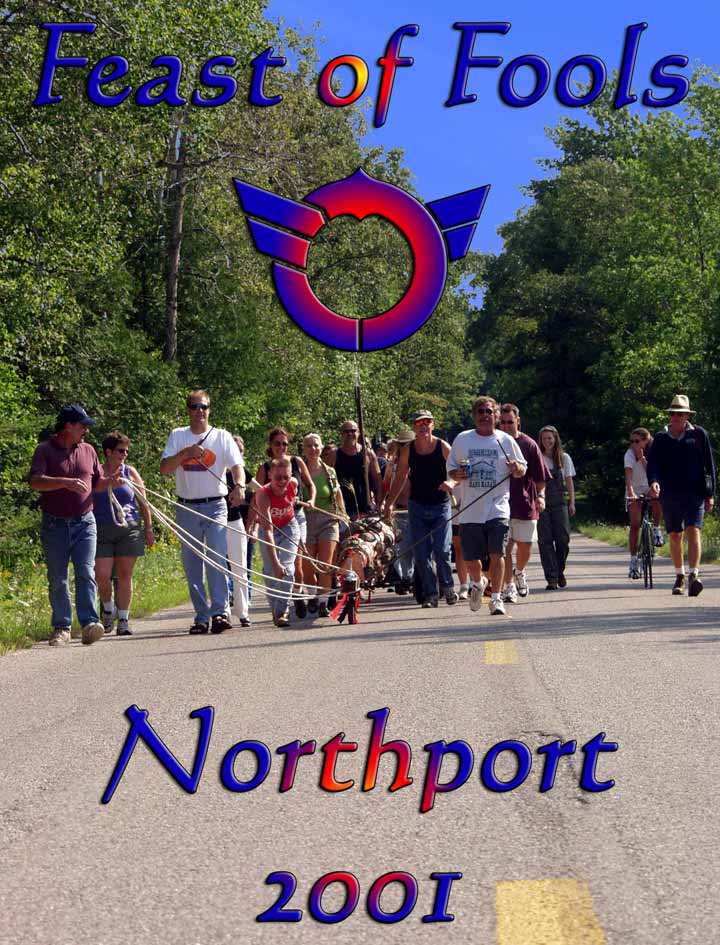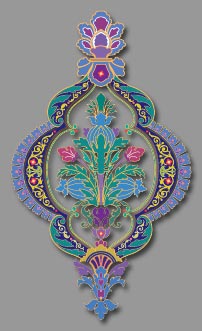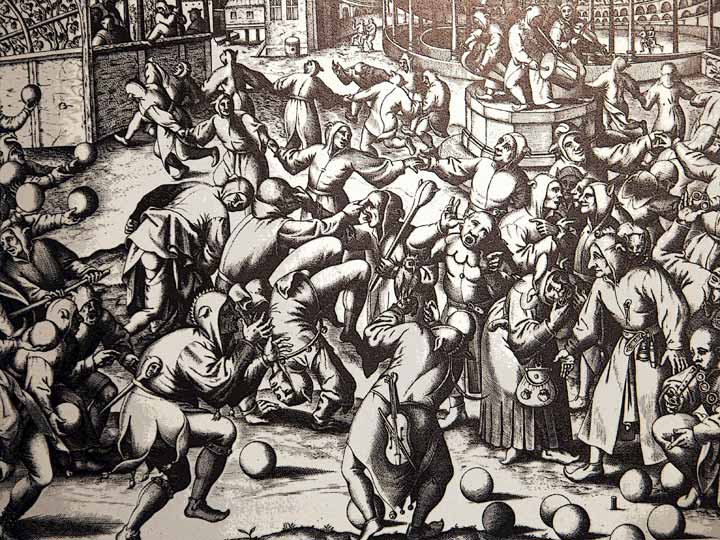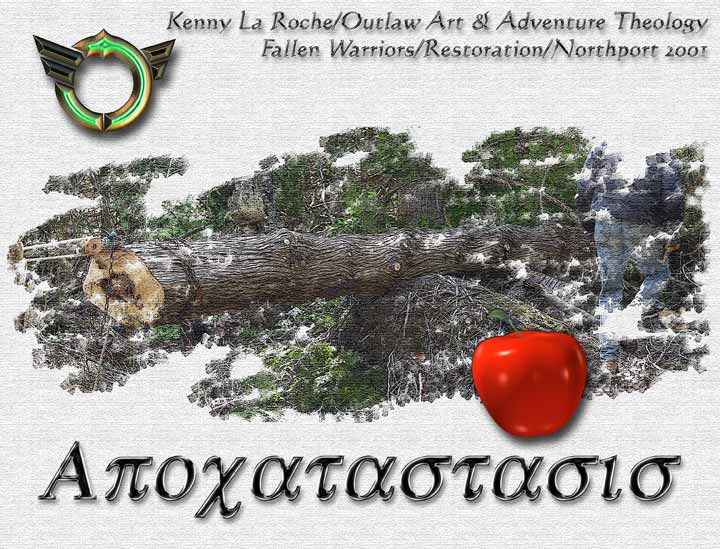 |
 |
 |
 |
||||||||
 |
|||||||||||
 |
 |
||||||||||
 |
|||||||||||


"Soufflaculs! Pétengueule!" Pooler Jones is drooling at the French of it all. He's been thru the "Offrande anale" as well as the eponymous "Baise cul" and the lesser appreciated "Roi lécheur." He's got that medieval tint to him & he bristles at the langue as well as its intentions. Festum fatuorum, festum stultorum, festum hypodiaconorum - the Feast of Fools in the Middle Ages was a highly ritualized dose of insanity in a world where license and buffoonery were deeply proscribed. The fête had a handful of names. Besides the Feast of Fools it was called the Feast of Asses, the Feast of the Boy Bishop and the aptly named Festival of the Subdeacons. Pooler claims the feast went back to the Roman Saturnalia and other celebrations of "Decembrian license." These were dead of the winter celebrations which often as not quickly turned to Orgy. The common denominator between all of these feasts is the idea of the reversal of the social order. For a few days the little people got to lord over the powerful: peasants became ersatz bishops, drunkards became masters, whores became a duchess or Grandes Dames de Maison, priests served sinners at their tables, the Bishop slopped stables or emptied the bed pans of lepers & idiots. At the Winter Solstice the sun itself stopped in the heavens and then reversed its course. On earth this retrograde gesture became the blueprint and even in the sacred celebration of the Mass the normal hierarchy of Christian sentiment became inverted for the festival as blasphemous Vespers and licentious Antiphonies were roared by the drunken crowds. Here a Conductus became an invitation to fornicate with beasts. Here the "esclaffardi" - the lower clergy - turned benediction into malediction and the Kyrie Eléison - the last bit of Greek in the Latin Mass - became the Kyrie Asini in the "Misse des Fous." Jesus Lord became Jesus the Ass.



